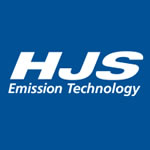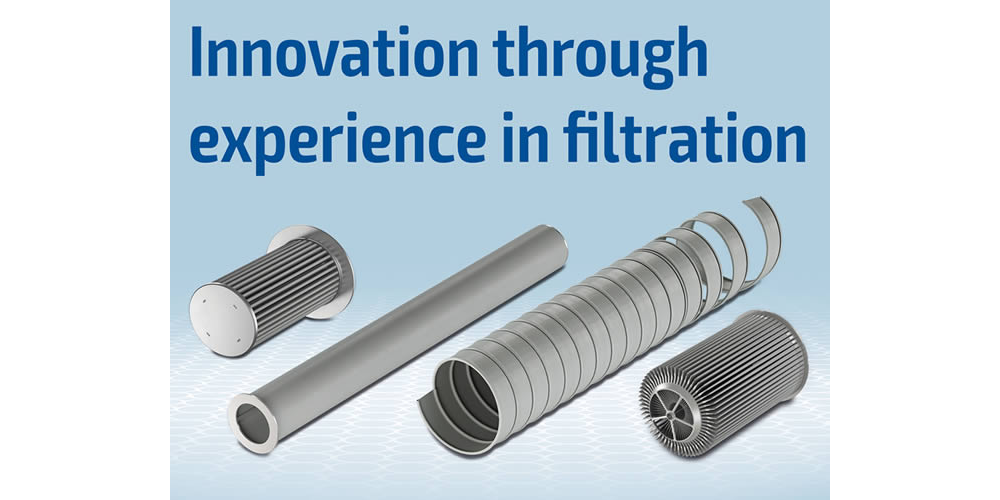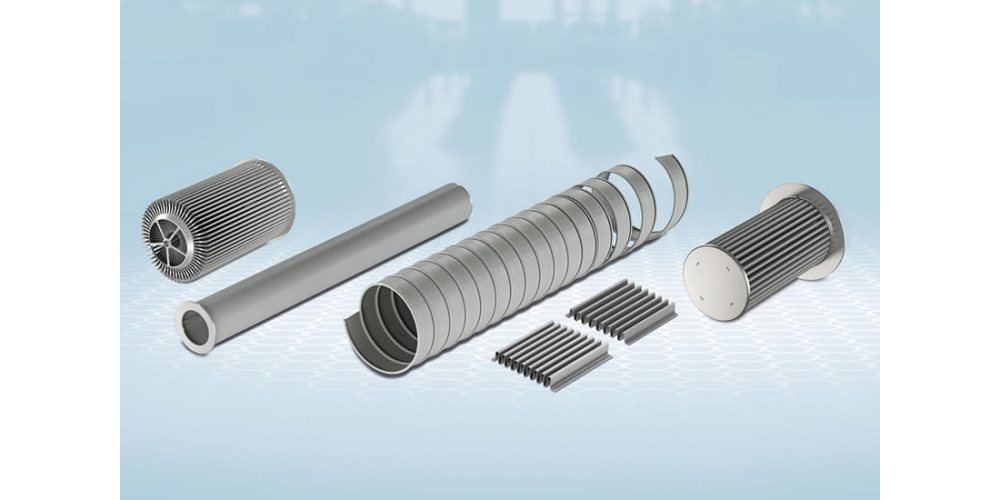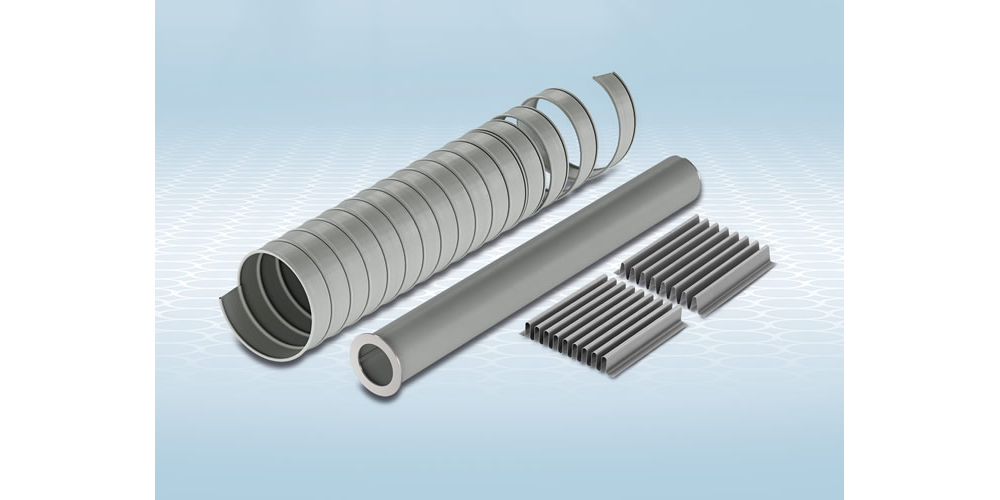HJS Emission Technology GmbH & Co. KG Hall 8 / B36

Exhibitor Profile
HJS Emission Technology stands for more than 45 years’ experience in environmental technologies and is making a significant contribution to meeting newest emission standards and climate targets worldwide.
Our mission is clean air.
Integrity and sustainability are the main supports of our commercial action.
HJS is an industry leader providing expertise and solutions in the field of exhaust-gas aftertreatment and industrial filtration technologies. We are certified OEM manufacture and development partner for mobility, drive line and filtration concepts. We have a wide-ranging patent portfolio for the manufacturing of sintered metal filter media (SMF) in the area of liquid and gas filtration.
Our innovative customized upgrade solutions are perfect designed for long lasting application and challenging requirements.
Products / Markets
Product Index
- Beutel-/Taschenfilter
- Coalescer Medien
- Filterbeutel aus Metallvlies
- Filterelemente
- Filtermedien f. Flüssigkeiten
- Filtermedien f. Gase
- Filterröhren, Röhrenfilter
- Gasfilter
- Gasreinigung
- Kammerfilterelemente
- Katalytische Filter
- Kerzenfilter
- Kohlefilter
- Luftfiltermedien
- Poröse Filtermittel
- Röhrenfilter
- Rückspülfilter
- Staub-/Tropfenfilter
Market Scope
- Automobilindustrie
- Metallverarbeitende Industrie
Product Index
- Air Filter Media
- Back Flush Filters
- Bag Filters
- Candle Filters
- Carbon Filters
- Catalytic Filter
- Chamber Filter Elements
- Coalescer Media
- Dust/Mist Filters
- Filter Bags from Metal Felt
- Filter Elements
- Filter Media for Gases
- Filter Media for Liquids
- Filter Tubes
- Gas Cleaning
- Gas Filters
- Porous Filter Media
- Tube Filters
Market Scope
- Automotive Industry
- Metal Processing Industry
Product Index
- 催化过滤器
- 多孔过滤器介质
- 尘/雾过滤器
- 气体净化
- 气体过滤器
- 气体过滤器介质
- 活性碳过滤器
- 液体过滤器介质
- 滤管
- 滤芯
- 烛形过滤器
- 空气过滤器介质
- 管式过滤器
- 聚结器介质
- 袋式平槽过滤器
- 袋式过滤器
- 袋式过滤器金属毡
- 过滤室元件
Market Scope
- 汽车工业
- 金属加工业
Product Index
- أكياس فلاتر من شعيرات معدنية
- أكياس فلترة
- أكياس فلترة للدفق العالي
- تنظيف الغاز
- فلاتر الغبار / الضباب
- فلاتر انبوبية
- فلاتر انبوبية
- فلاتر طولانية
- فلاتر غازات
- فلاتر كربونية
- قطع فلاتر
- قطع فلاتر المقصورات
- مرشح حفاز
- مواد إلتحام
- مواد تثقيب الفلاتر
- مواد فلاتر الهواء
- مواد فلترة السوائل
- مواد فلترة الغازات
Market Scope
- صناعة السيارات
- صناعة معالجة المعادن
Product Index
- Eléments de filtre
- Eléments de filtres à chambres
- Filtre Catalytic
- Filtres en forme de bougie
- Filtres à carbone
- Filtres à gaz
- Filtres à poussières/buées
- Filtres à sacs
- Filtres à tubes
- Fluides coalescents
- Fluides pour filtres à air
- Médias de filtre pour gaz
- Médias de filtre pour liquides
- Médias de filtres poreux
- Nettoyage des gaz
- Sacs de filtres de décolmatage
- Sacs de filtres en feutre métallique
- Tubes de filtres
Market Scope
- Industrie automobile
- Industrie métallurgique
Product Index
- Elementi filtranti
- Elementri filtranti camera
- Filtri a tasche
- Filtri candele
- Filtri carbone
- Filtri di risciacquo
- Filtri gas
- Filtri per tubi
- Filtri polvere/nebbie
- Maniche Catalitiche
- Mezzi di miscelazione
- Mezzi filtranti aria
- Mezzi filtranti per gas
- Mezzi filtranti per liquidi
- Mezzi filtranti porosi
- Pulizia gas
- Tasche filtri in feltro metallico
- Tubi filtri
Market Scope
- Settore automobilistico
- Settore lavorazione metallo
Product Index
- Elementy filtra
- Elementy komory filtracyjnej
- Filtr Katalityczny
- Filtry ciśnieniowe
- Filtry gazu
- Filtry przeciwpyłowe/przeciwmgielne
- Filtry rurowe
- Filtry workowe
- Filtry węglowe
- Filtry świecowe
- Media filtrów cieczy
- Media filtrów gazu
- Media filtrów porowatych
- Media filtrów powietrza
- Media koagulantów
- Oczyszczanie gazu
- Rury filtracyjne
- Worki filtracyjne z włókien metalowych
Market Scope
- Obróbka metali
- Przemysł samochodowy
Product Index
- Elementos de filtros de câmaras
- Elementos filtrantes
- Filtro Catalítico
- Filtros de carvão
- Filtros de gases
- Filtros de poeiras/vapores
- Filtros de saco
- Filtros de saco de águas residuais
- Filtros de tubos
- Filtros de velas
- Meios de filtragem para gases
- Meios de filtragem para líquidos
- Meios de filtragem porosa
- Meios de filtro do ar
- Meios de separação de gotas
- Purificação de gases
- Sacos filtrantes de feltros de metal
- Tubos de filtros
Market Scope
- Indústria automóvel
- Indústria de processamento de metal
Product Index
- Газовые фильтры
- Газоочиститель
- Камерные фильтровальные элементы
- Каталитический фильтр
- Коалесцирующий материал
- Пористый фильтрующий материал
- Пылевые / масляные фильтры
- Рукавные проточные фильтры
- Рукавные фильтры
- Свечевые фильтры
- Трубные фильтры
- Трубные фильтры
- Угольные фильтры
- Фильтровальные мешки из металлического войлока
- Фильтрующие элементы
- Фильтрующий материал
- Фильтрующий материал для газов
- Фильтрующий материал для жидкостей
Market Scope
- Автомобильная промышленность
- Металлообрабатывающая промышленность
Product Index
- Bolsas de filtro para fieltro metal
- Elementos de filtro
- Elementos filtrantes de cámara
- Filtro Catalítico
- Filtros de bolsa
- Filtros de carbón
- Filtros de descarga de bolsa
- Filtros de gas
- Filtros de polvo/neblina
- Filtros de tubo
- Filtros de vela
- Limpieza de gas
- Medios de filtros de aire
- Medios de filtros para gases
- Medios de filtros para líquidos
- Medios de filtros porosos
- Medios de separadores coalescentes
- Tubos de filtros
Market Scope
- Industria de la automoción
- Industria de procesamiento de metales
Product Index
- Birleştirici Ortamı
- Filtre Boruları
- Filtre Elemanları
- Gaz Filtreleri
- Gaz Temizleme
- Gazlar için Filtre Ortamı
- Gözenekli Filtre Ortamı
- Hava Filtresi Ortamı
- Hazne Filtresi Elemanları
- Karbon Filtreler
- Katalitik Filtre
- Metal Keçeden Filtre Torbaları
- Mum Filtreler
- Sıvılar için Filtre Ortamı
- Ters Yıkamalı Filtreler
- Torba Filtreler
- Toz/Buğu Filtreleri
- Tüp Filtreler
Market Scope
- Metal İşleme Endüstrisi
- Otomotiv Endüstrisi
Product Index
- 가스 정화
- 가스 필터
- 가스용 여과재
- 공기 여과재
- 금속 펠트로부터 필터 백
- 다공질 여과재
- 먼지/안개 필터
- 백 플러시 필터
- 백 필터
- 액체용 여과재
- 챔버 필터 요소
- 촉매담지필터
- 캔들 필터
- 코어레서 매체
- 탄소 필터
- 튜브 필터
- 필터 엘리먼트
- 필터 튜브
Market Scope
- 금속 가공 산업
- 자동차 산업
Product Index
- エアフィルターメディア
- ガスフィルター
- ガス洗浄
- ガス用濾過材
- キャンドルフィルター
- コアレッサーメディア
- ダスト・ミストフィルター
- チャンバーフィルターのエレメント
- チューブフィルター
- バックフラッシュフィルター
- バッグフィルター
- フィルターエレメント
- フィルターチューブ
- メタルフェルトのフィルターバッグ
- 多孔質フィルターメディア
- 活性炭フィルター
- 液体用濾過材
- 触媒担持セラミックフィルター
Market Scope
- 自動車産業
- 金属加工業界
What's new
HJS stellt Filterlösungen auf der FILTECH vor - Technik zum Filtrieren und Separieren im industriellen Einsatz
Zum zweiten Mal in Folge stellt der Sauerländer Filterspezialist HJS sein Produktportfolio für Industrieanwendungen auf der Messe FILTECH in Köln vor. Vom 14. bis zum 16. Februar präsentiert HJS auf der weltweit bedeutendsten Konferenz für Filter- und Trenntechnik vor allem die Industrielösungen rund um das Filtermedium Sintermetall.
Die von HJS patentierte Sintermetall-Filtertechnologie SMF® ist über Jahrzehnte bei der Filterung von Abgasen aus Verbrennungsmotoren im Einsatz. Zahlreiche Hersteller von Fahrzeugen und Baumaschinen setzen auf die Filtrierung mit HJS-Technik und erreichen somit die strengsten Anforderungen zur Partikelreduzierung.
SMF® ist ein mechanisch und thermisch hochstabiles Filtermedium, das HJS ähnlich wie Papier oder synthetische Filtermedien plissieren oder als Endlos-Band herstellen kann. Es eignet sich hinsichtlich der Temperaturbeständigkeit bestens für Industrieprozesse. Deshalb ist HJS zum zweiten Mal in Folge auf der FILTECH in Köln präsent, um die vielseitigen Einsatzmöglichkeiten von SMF® außerhalb der Motorabgasreinigung vorzustellen.
„Sintermetallfilter bieten großes Optimierungspotential innerhalb bestehender Produktionsverfahren in Hinblick auf die Reduzierung des Energieverbrauchs“, erläutert HJS- Sales Manager Hubertus Borgmeier. Eines davon ist die Heißgasfiltration: Bei vielen industriellen Fertigungsprozessen entstehen bei Temperaturen bis 800 °C Emissionen mit hohen Staublasten. Heutige und künftige Umweltstandards schreiben die effiziente Filterung vor, die mit konventionellen Textil-Schlauchfiltern nur unter Inkaufnahme energieintensiver Kühlung möglich ist. Sintermetall entstaubt heiße Gase hingegen direkt und erlaubt dazu die Nutzung ihrer Wärmeenergie für Strom oder Wärme. Diese Rückgewinnung kann den produktionsbedingten CO2-Ausstoß drastisch reduzieren.
Das Team von HJS freut sich auf einen konstruktiven Austausch am Stand D22 und heißt alle Interessenten auf der FILTECH 2023 herzlich willkommen.
Über die Sintermetalltechnologie SMF®
SMF® ist ein mechanisch und thermisch hochstabiles Filtermedium, das HJS ähnlich wie Papier oder synthetische Filtermedien plissieren oder als Endlos-Band herstellen kann. Bei der Filtration von Flüssigkeiten zeigt das Material im Multi-Pass Test nach ISO 16889 beste Ergebnisse mit einer sehr hohen Selektivität bei 10 µm. Für das Serienmaterial aus 310S-Stahl ergaben die Messungen für die Gasfiltration nach ISO 16890 einen Abscheidegrad ePM1 von 85%, was F9 nach EN 779 entspricht. Für ein möglichst breites Anwendungsspektrum werden auch andere Stähle (316L) sowie gröbere Filtermaterialien mit ca. 20 µm und 30 µm mittlerer Porengröße eingesetzt. In den letzten 15 Jahren wurden auf den vollautomatischen Produktionsanlagen von HJS mehr als 2 Mio. Quadratmeter des 0,4 mm dünnen Sintermetallfiltermaterials gefertigt.
Um die Funktion von Filterelementen aus SMF® für die industrielle Hochtemperaturentstaubung in diesem Einsatz zu verifizieren, wurden Tests nach VDI 3926 mit verschiedenen Prüfstäuben durchgeführt. Durch Variation der Parameter (Filtrationsgeschwindigkeit, Abreinigungsdruck) konnten Auslegungsgrundsätze für zukünftige Filterelemente und das Jet-Puls-Verfahren zur Abreinigung entwickelt und das sehr gute Regenerationsverhalten des SMF-Materials unter realistischen Randbedingungen nachgewiesen werden.
Neben den grundlegenden technischen Untersuchungen und Versuchen liegt der aktuelle Fokus von HJS auf der Industrialisierung der für die Herstellung der Filterelemente benötigen Fertigungsprozesse. Für die Herstellung müssen u.a. Schweißprozesse automatisiert und Qualitätsprüfungen standardisiert werden, um beispielswiese Filterkerzen mit einem Durchmesser von 160 mm und einer Länge von bis zu 10 m in seriennaher Qualität herstellen zu können.
Breakthrough for heated gas filtration with HJS Sintered Metal Filter Technology SMF®
For the second time, HJS, the filter specialist from the Sauerland region, presented its product portfolio for industrial applications at the FILTECH in Cologn.
HJS (Menden, Germany) is a global leader in providing a revolutionary approach to emission reduction through its leading-edge sintered metal filter technology – SMF®.
HJS's patented sintered metal filter technology (SMF®) has proven its worth over the past decades in the filtration of exhaust gases from internal combustion processes and is used by a large number of vehicle and construction machinery manufacturers to meet the most stringent exhaust standards. By using this method, the strictest requirements for particle number reduction can be achieved.
In the last 15 years, more than 2 million m² of the 0.4 mm thin sintered metal filter material has been produced on HJS's fully automated production lines.
SMF® is a mechanically and thermally highly stable filter medium that can be pleated and is produced as a continuous belt.
In the filtration of liquids, the material shows best results in the multi-pass test according to ISO 16889 with a very high selectivity at 10 µm. For the series material made of 310S steel measurements for gas filtration according to ISO 16890 showed a separation efficiency ePM1 of 85%, which corresponds to F9 according to EN 779.
For the widest possible range of applications, other steels (316L) as well as coarser filter materials with approx. 20 µm and 30 µm selectivity are also used.
SMF® is particularly suitable for hot gas filtration. In many industrial manufacturing processes, very high temperatures of more than 800 °C / 1.500 °F produce large emission loads with high solid contents (dust loads) which must be filtered efficiently due to the given environmental standards.
Due to the low temperature resistance of the textile bag filters used today, the exhaust gases must therefore be cooled down extensively at the cost of high energy losses.
Alternatively, with the help of SMF®, direct dedusting of the hot gases can take place and the dust-free hot process gas can be used for energy recovery with the help of Organic Rankine Cycle (ORC) - a technology that converts thermal energy into clean electricity and, if necessary, useful heat. This saves immense amounts of energy and thus helps to drastically reduce CO2 emissions.
In order to verify the function of filter elements made of SMF® for industrial high-temperature dedusting in this application, tests were carried out according to VDI 3926 with PURAL NF and with lime dust.
The design principles for future filter elements and the jet pulse cleaning method for cleaning were developed by varying the parameters (filtration speed, cleaning pressure) and the regeneration behavior of the SMF® material under realistic boundary conditions was demonstrated.
The current focus is on the industrialization of the manufacturing processes required for the production of the filter elements.
Our current projects thus prove the optimisation possibilities in existing processes and applications with regard to efficiency and energy.
If you would like to learn more, please visit us at FILTECH hall 8, D22.
As we look forward to a positive exchange, we would like to extend a warm welcome to all interested parties.
What's new
HJS: bereit für die industrielle Evolution - Neuer Markt für bewährte Filtertechnologie im Fokus
Das Sauerländer Unternehmen HJS ist im Bereich der Abgasnachbehandlung Marktführer: Dank der selbstentwickelten Technologien fahren hunderttausende Dieselfahrzeuge sauber über die Straßen Europas. Die an Verbrennungsmotoren gereifte Filtertechnologie hat so vielversprechende Eigenschaften, dass HJS nun das Anwendungsgebiet auf die Industriefiltration erweitert.
Seit den 1990er Jahren entwickelt und produziert das Unternehmen HJS Emission Technology in Menden Filterlösungen, die vor allem in der Fahrzeugindustrie eingesetzt werden. Die streng kontrollierten Umweltauflagen für Dieselmotoren erfüllt das Unternehmen mithilfe selbstentwickelter Partikelfilter, diese filtern den Ruß und Feinstaub aus dem Abgas. Dazu strömt das heiße Abgas in das Filtergehäuse und durch ein beschichtetes, poröses Sintermetallgewebe, das nahezu alle Ruß- und Staubpartikel in mikroskopisch feinen Poren einfängt. Nahezu 100 Prozent der Verunreinigungen bleiben hängen, aus dem Auspuff kommen nur noch saubere Abgase.
Ein einfaches Wirkprinzip, für dessen Entwicklung HJS im Jahr 2003 den Deutschen Umweltpreis erhalten hat. Die Filter kommen ohne Keramik aus und bestehen aus Sintermetall: Ein Metallpulvergemisch wird unter Druck und Hitze auf ein Streckmetallgitter aufgebracht. So entsteht ein dünnes Bandmaterial von unter einem halben Millimeter Dicke mit einer porösen Metalloberfläche, die für den Einsatz als Filter eine Reihe praktischer Eigenschaften aufweist. Sie lassen sich individuell für jeden Anwendungszweck zu verschiedensten Bauformen bearbeiten und umformen, filtern zuverlässig bei hohen Betriebstemperaturen und verfügen über eine hohe Eigenstabilität, sodass keine zusätzlichen Stützkörper benötigt werden. Die Reinigung der Filter ist einfach, automatisierbar und funktioniert auch während des Betriebs. Ist die Lebensdauer eines Filters mal überschritten, ist er komplett recyclebar.
Die Technologie ist seit Jahren im Automobilbereich erprobt doch seine Vielseitigkeit macht den Werkstoff auch für den Industrieeinsatz interessant. Deshalb will HJS sein gewachsenes Know-How nun in neuen Anwendungsfeldern unter Beweis stellen: In der Industrie besteht ein enormer Bedarf an Filtrationslösungen. Er erstreckt sich in der Anwendung über die Bereiche der Biotechnologie, die Lebensmittelproduktion, die Medikamenten- und Impfstoffherstellung sowie über die gesamte Palette der chemischen Industrie von Industriegasen bis hin zur Petrochemie. Als geeignete Anwendungsgebiete haben die Sauerländer die Heißgasfiltration in Fabriken, Werkstätten und Schwerindustrie identifiziert. Auch Flüssigkeiten lassen sich effizient und wartungsarm mit Sintermetallen filtern: „Sintermetallfilter sind äußerst stabil und leicht zu reinigen. Unsere Tests haben gezeigt, dass sie sich insbesondere für Aufgaben in der Hydraulik- und Kraftstofffiltration eignen“, erläutert Klaus Schrewe, Leiter Innovations- und strategisches Produktmanagement bei HJS. „Allerdings bietet das Produkt auch eine breite Anwendungsvielfalt für alle Gase und Flüssigkeiten – weil es so flexibel einsetzbar ist“.
Unabhängige Tests bescheinigen den HJS-Sintermetallfiltern einen ePM1-Wert von 85 Prozent und damit die Erfüllung der Anforderungen für die industrielle Gasfiltration. Beim Multipass-Test mit Hydrauliköl wird ein Wirkungsgrad bei Beta 100 von 9,6 µm erreicht. Ein Unternehmen der Plasmatechnik setzt bereits HJS-Filter ein. Auch für die Heißgasreinigung in Kalk- und Zementwerken ist Sintermetall durch seine thermischen Eigenschaften prädestiniert. Im Gegensatz zu konventionellen Schlauchfiltern kann mit Hilfe von metallenen Wickelfalzkerzen aus Sintermetall die aufwendige und energieintensive Kühlung der Heißgase entfallen.
Am Standort in Menden kann das Unternehmen jährlich bis zu 300.000 Quadratmeter Sintermetall auf Endlosband automatisiert und OE-konform produzieren. Hinter dem simpel klingenden Filterprinzip steckt jahrelange Forschung und kontinuierliche Suche nach cleveren Filterdesigns und passenden Ausgangsmaterialien. Die jahrzehntelange Erfahrung aus der eng kontrollierten Abgasnachbehandlung kann HJS nun auch im Industriebereich nutzen. Auf der FILTECH, der Messe für Filter- und Trenntechnik in Köln, wird das Unternehmen vom 8. bis zum 10. März präsent sein und für die erweiterte Anwendung der Technik werben.
HJS: ready for industrial evolution - New market focus for proven filter technology
HJS, a company based in the Sauerland region of Germany, is a market leader in the field of exhaust gas aftertreatment: thanks to the proprietary technologies it has developed, hundreds of thousands of diesel vehicles are driving cleanly along Europe's roads. HJS is expanding its field of application to include industrial filtration which has benefitted from their extensive experience on combustion engines.
HJS Emission Technology, Menden, has developed and produced filter solutions that are primarily used in the automotive industry since the 1990s. HJS meets the strictly controlled environmental regulations for diesel engines with the help of particle filters which are developed by HJS engineers. These filters remove the soot and fine dust from the exhaust gas. Hot exhaust gas flows into the filter housing and through a coated porous sintered metal mesh, which traps almost all soot and dust particles in microscopically fine pores. Almost 100 percent of the impurities are trapped, resulting solely in clean exhaust gases which are released from the exhaust.
In 2003 HJS was awarded the German Environmental Prize for this simple operating principle. The filters do not require ceramics and they are made of sintered metal: a mixture of metal powders is applied to an expanded metal mesh under pressure and heat. This produces a thin strip material less than half a millimetre thick with a porous metal surface that has a number of practical properties for use as a filter. They can be individually machined and formed into a wide variety of shapes for any application. This material provides excellent reliably at high operating temperatures and exhibit a high inherent stability so that no additional support bodies are required. Cleaning the filters is simple, and the process can be automated without a service disruption during operation. At the end its service life, the filter is completely recyclable.
The technology has been tried and tested in the automotive sector for years, but its versatility also makes the material a viable option for industrial use. That's why HJS now wants to demonstrate its growing experience in new fields of application: There is an enormous demand for filtration solutions in industry. In terms of application, it extends across the fields of biotechnology, food production, the manufacture of medicines and vaccines, and the entire range of the chemical industry from industrial gases to petrochemicals. The Sauerland-based company has identified hot gas filtration in factories, workshops and heavy industry as suitable areas of application. Liquids can also be filtered efficiently and with low maintenance using sintered metals: "Sintered metal filters are extremely stable and easy to clean. Our tests have shown that they are particularly suitable for tasks in hydraulic and fuel filtration," explains Klaus Schrewe, Head of Innovation and Strategic Product Management at HJS. "However, the product also offers a wide range of applications for all gases and liquids - because it can be used so flexibly."
Independent tests certify that the HJS sintered metal filters have an ePM1 value of 85 percent and thus meet the requirements for industrial gas filtration. In the multipass test with hydraulic oil, a Beta 100 efficiency of 9.6 µm is achieved. A plasma technology company is already using HJS filters. Sintered metal is also predestined for hot gas purification in lime and cement works due to its thermal properties. In contrast to conventional bag filters, metal spiral-wound cartridges made of sintered metal can eliminate the need for costly and energy-intensive cooling of the hot gases.
At its site in Menden, HJS can produce up to 300,000 square metres of sintered metal per year on a continuous belt, automated and OE-compliant. Behind the simple-sounding filter principle lies years of research and continuous search for clever filter designs and suitable starting materials. HJS can now use its decades of experience in closely controlled exhaust gas aftertreatment in the industrial sector. The company will be present at FILTECH, the trade fair for filter and separation technology in Cologne, from 8 to 10 March to promote the extended application of the technology.


